SUMMARY
This is AI generated summarization, which may have errors. For context, always refer to the full article.
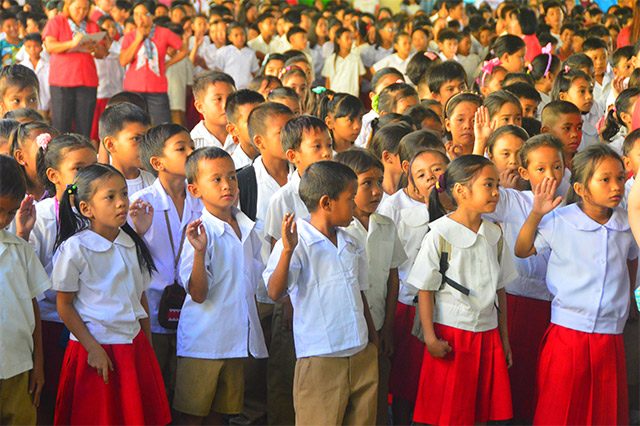
MANILA, Philippines – “Malinaw po: Hindi na tayo mag-iiwan ng sakit ng ulo sa susunod sa atin (It is clear: We will no longer leave behind headaches for the next administration).”
This was the fearless forecast of President Benigno Aquino III in his last State of the Nation Address in July 2015, when he talked about the achievements of his administration in the education sector, including the elimination of education backlogs and the implementation of the K to 12 program.
Under the Aquino administration, the budgets for both basic and higher education increased, and other important laws were passed, including the anti-bullying law, the Iskolar ng Bayan Act, and the Unified Student Financial Assistance System for Tertiary Education (UniFAST) Law.
Nonetheless, the 6 candidates eyeing to be Aquino’s successor all have their own lists of education promises they vow to fulfill should they win on May 9.
Vice President Jejomar Binay
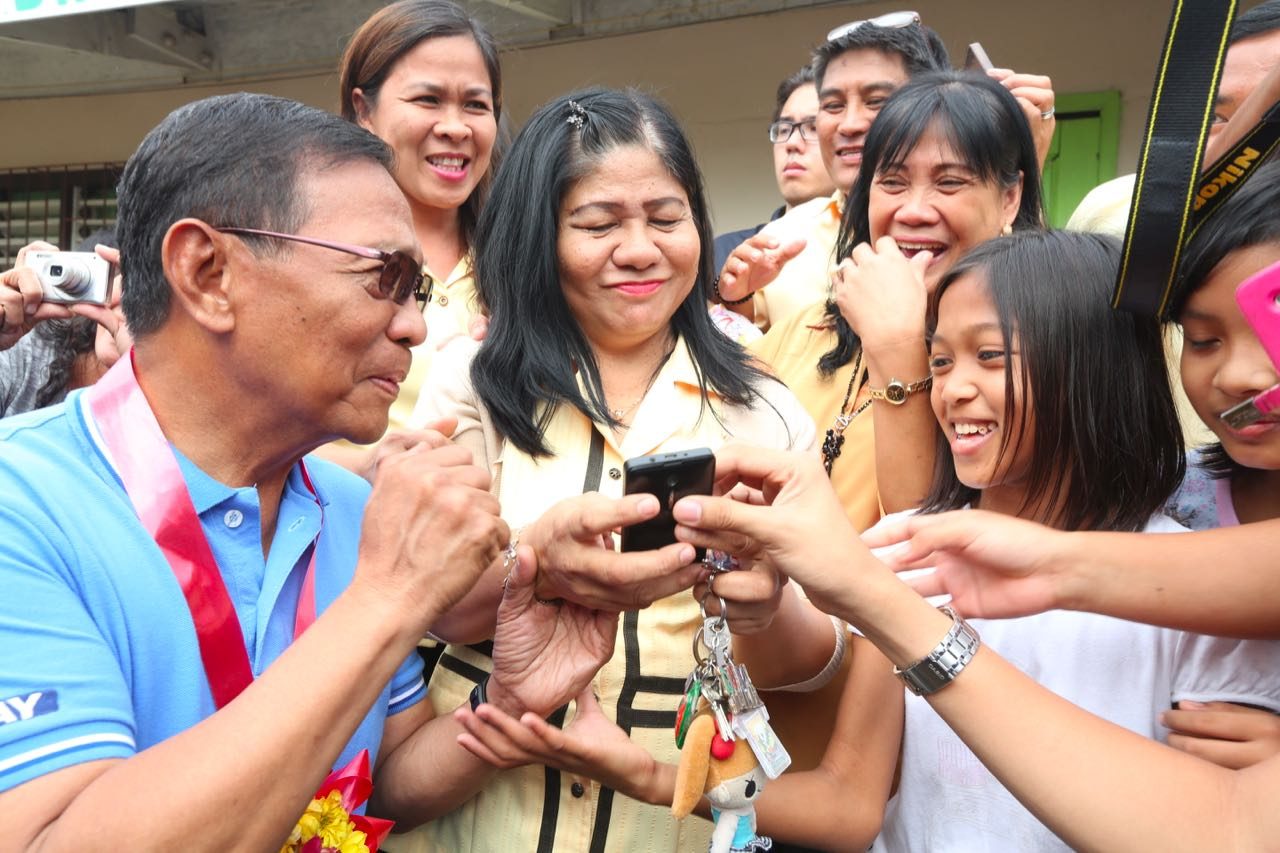
Binay said he will establish a National Education Council under the Office of the President, which will institutionalize the linkage among the private sector and government agencies, namely the Department of Education, the Commission on Higher Education, and the Technical Education and Skills Development Authority.
This council aims to harmonize the implementation of the K to 12 program and address skills mismatch in the country.
On basic needs in education. Binay vowed to prioritize free basic education for public school children, providing free textbooks, school supplies, uniforms, and food to at least 20 million students. He wants to bring schools closer to children and address backlogs in classrooms, teachers, and textbooks.
He promised a 20%-increase in the budget for education and training, and to complete building at least 50,000 classrooms. He also wants more special education schools, and a national nutrition and feeding program for children aged 1-6.
Under his administration, he said underprivileged students will get scholarship grants, student loan programs, subsidies and other incentives. The Government Assistance to Students and Teachers in Private Education law will also be expanded.
On teachers. Binay said he will raise the minimum pay of teachers from Salary Grade 11 (P18,549) to Salary Grade 19 (P33,859).
Additional benefits await teachers if he wins, including more training opportunities, housing, study grants for both teachers and their children, instructional materials allowance, 20%-discount on food, transportation, medical and dental services. He also wants teachers to get discounts on burial services.
On K to 12. The Vice President wants to review the implementation of K to 12 and add an apprenticeship program. Under this program, schools will partner with private companies that will train students and give them living allowance so they can earn while learning.
On higher education. Binay hopes to expand subsidies not only for college education, but also for technical-vocational training. He said students can expect continued annual budget increase for state universities and colleges (SUCs) under his administration.
Citing the University of the Philippines (UP) as example, he said the Philippine General Hospital (PGH) eats up to a third of the UP budget. He proposed leaving the hospital’s maintenance to the national government, while UP maintains the operation of the College of Medicine.
He also wants higher education institutions (HEIs) and private sector enterprises to work together in developing a college curriculum “attuned to the requirements of the labor market.”
Davao City Mayor Rodrigo Duterte
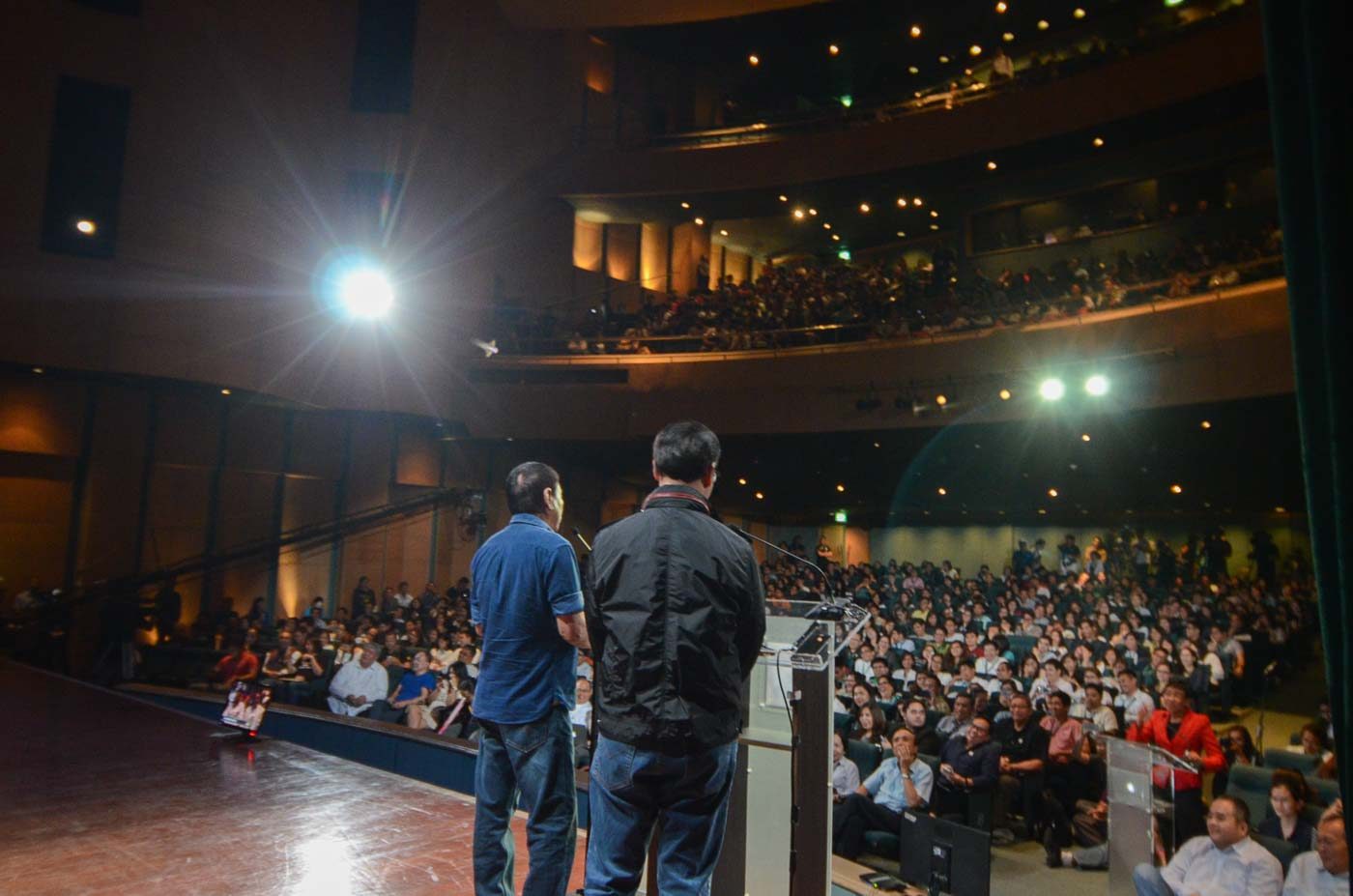
Education is Duterte’s second top budget priority, after agriculture and before health.
He vowed to double the salary of teachers by 6 years, and build adequate classrooms for students. He also wants to provide scholarships for children of members of the military who die in the line of duty.
He said school subjects such as algebra, calculus, and trigonometry should be replaced with business mathematics.
Senator Grace Poe
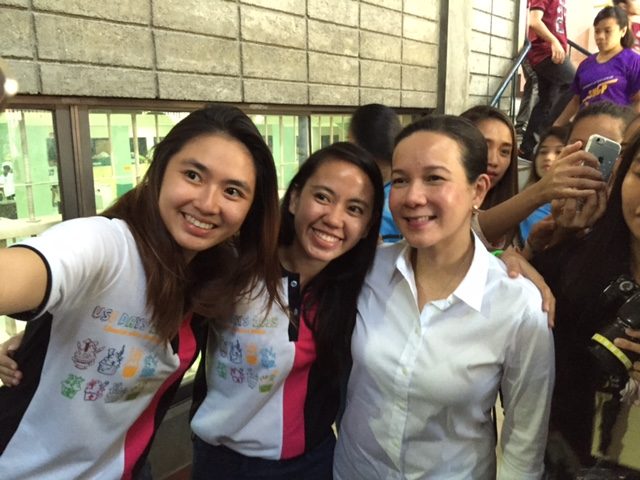
Poe vowed to allocate 20% of the national budget for priority social services such as education. She wants education to be more accessible and affordable by providing scholarship grants and vouchers to poor but deserving students. She also wants K to 12 graduates to be allowed to enter the Philippine National Police.
On basic needs in education. Poe vowed to eliminate classroom backlogs and maximize digital technology for education. She also wants to fix public schools destroyed by typhoons.
She said her administration will develop a curriculum for indigenous peoples and will initiate reforms in the budget to make sure indigenous people’s education is rooted in the IP’s’ culture. Her target? Build more schools within the 5-kilometer range of IP communities.
On teachers. Poe’s promise is to lower income taxes so that teachers will get higher take-home pay. In addition, she wants a Salary Standardization Law that will give teachers across the board a minimum pay of P25,000
On higher education. What awaits college students under a Poe presidency? For starters, she promised to provide free education for indigents (especially children of farmers and fisherfolk) from kindergarten to college. If elected, Poe will make sure all students will enjoy free tuition fees in all SUCs in the country.
Poe has committed to fully implement the UniFAST law, even vowing to expand scholarship programs and strengthen the “Study Now, Pay Later” system for poor students, regardless of whether they want to study in SUCs or in private HEIs. She also wants to provide paid internships for college students, and job opportunities for the fresh graduates.
The senator also has more specific education promises, including:
- Free wi-fi, new facilities, and equipment for Southern Luzon State University
- A UP campus in Bicol
- Additional funding for UP Visayas-Miagao, Mindanao State University-Naawan, Central Luzon State University, Pangasinan State University-Binmaley for the:
- Expansion of their BS Fisheries programs to enroll more students – especially children of fisherfolk – through scholarships, to build better laboratories, and attract more faculty members
- Development of ladderized programs, allowing students to get jobs even before they complete a 4-year undergraduate course
- Training fisherfolk on proper use of technology and equipment, as well as prospects of alternate livelihood for their fishing communities
Former interior Secretary Manuel “Mar” Roxas II
Banking on what the current administration has achieved, Roxas said he will continue and improve programs that will enhance educational infrastructure and ensure the sufficiency of basic education inputs in order to keep up with needs under the K to 12 program.
He also sees the need to boost the performance of teachers through “more extensive capacity building programs.”
Roxas said that under his administration, high school graduates who will finish at the top of their class will be financially supported as they pursue higher education.
He wants to develop technical-vocational centers in the provinces to make technical-vocational education an integral part of the country’s formal education system.
Roxas also wants to adopt international standards in assessing the performance of Philippine schools, colleges, and universities – a move which, he said, will raise the competitiveness of the schools and their graduates.
Senator Miriam Defensor Santiago
Santiago’s commitment is to make the government work for Filipinos through quality education for all – whether formal, non-formal, or special education. She also wants to see an advancement of science and technology education in the country.
She said there is a need for a stronger recruitment process of teachers, and the creation of more infrastructure that will increase access to more schools in the provinces and other hard-to-reach areas.
If she wins, Santiago vowed to revisit the K to 12 program and check whether public schools in the country are ready to implement it. But for the senator, the program’s Mother-Tongue-Based Multi-Lingual-Education should still be implemented during the early years of education.
When it comes to higher education, Santiago promised to allocate a higher budget for SUCs that will fund tuition subsidy, books, and capital outlay. She also wants to provide a free information and communications technology college education for poor but deserving students. – Rappler.com
Read more from this series:
Add a comment
How does this make you feel?
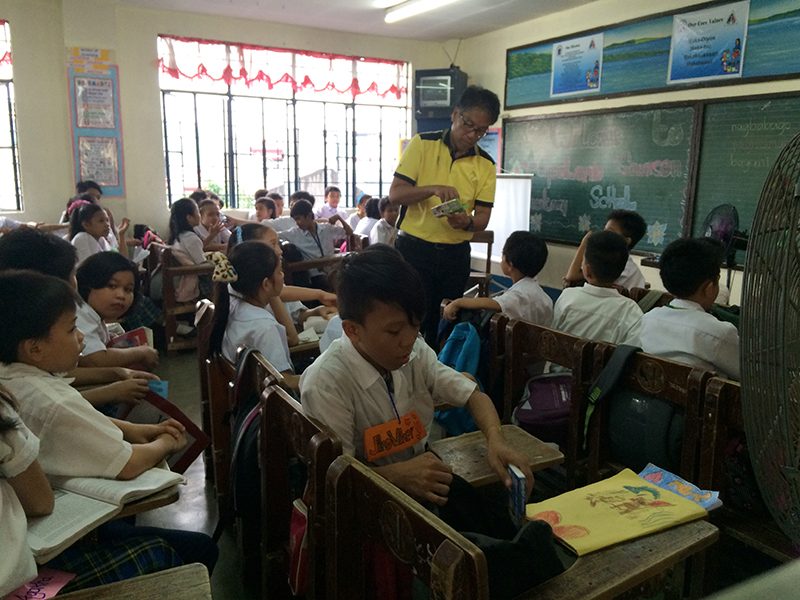
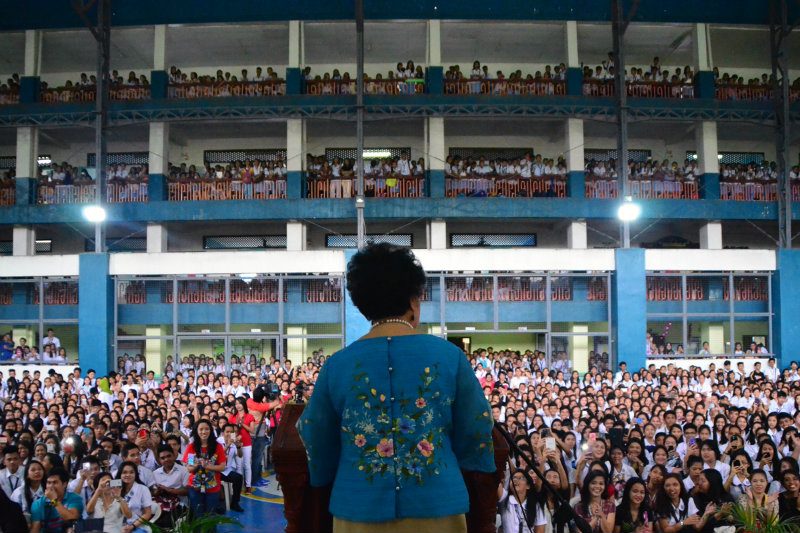
There are no comments yet. Add your comment to start the conversation.